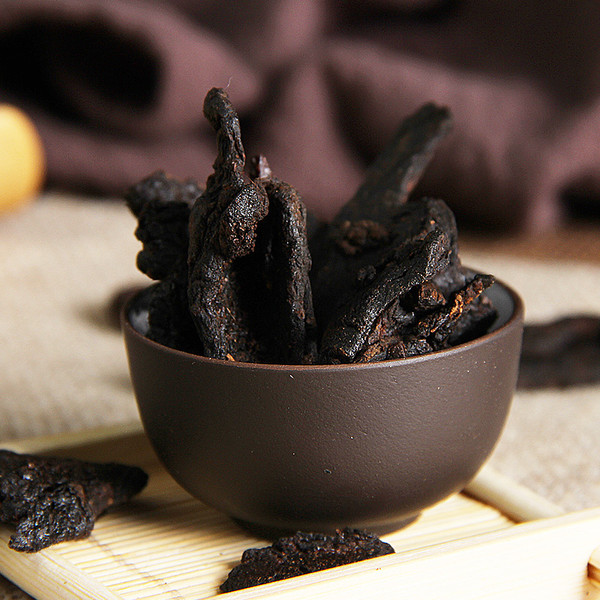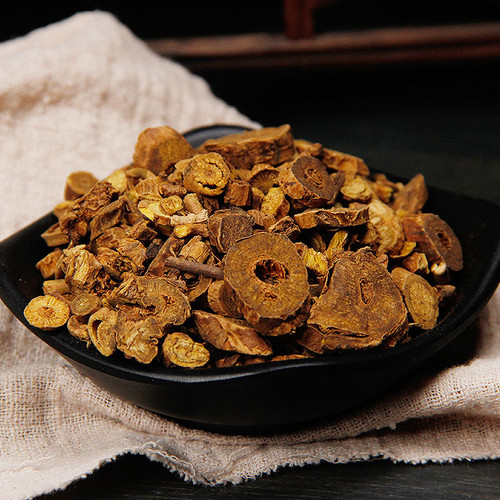Product Overview
Parts used: Dried rhizome
TCM category: Tonic herbs for Qi Deficiency
TCM nature: Neutral
TCM taste(s): Sweet
Meridian affinity: Spleen Kidney Lung
Scientific name: Polygonatum kingianum, Polygonatum sibirium or Polygonatum cyrtonema
Other names: Solomon seal, Solomonseal, Siberian Solomon Seal
Use of king solomon's seal roots (Huang Jing) in TCM
Please note that you should never self-prescribe TCM ingredients. A TCM ingredient is almost never eaten on its own but as part of a formula containing several ingredients that act together. Please consult a professional TCM practitionner, they will be best able to guide you.
Preparation: Dig the root out in spring or autumn, remove the fibrous elements and wash it. Boil or steam it thoroughly, until the core of the root is cooked. Dry it and boil it again in Chinese yellow wine. Dry it again under the sun. Repeat the process (boiling in Chinese wine and dry) another 7 times. Dry a final time.
Dosage: 9-15g.
Main actions according to TCM*: Supply Qi and nourish Ying. Tonifies the Spleen. Moistens Dryness. Tonifies the Kidneys and supplements Essence.
Primary conditions or symptoms for which king solomon's seal roots may be prescribed by TCM doctors*: Diabetes Fatigue Premature graying Dry cough Dry mouth Anorexia
Contraindications*: Not to be used for Spleen Deficiency with Dampness and poor digestion as this herb is very dampening.
Common TCM formulas in which king solomon's seal roots are used*:
For Spleen Qi deficiency combine king solomon's seal roots with atractylodes rhizomes (Bai Shu) and codonopsis roots (Dang Shen).
For weakness of the back and knees, lassitude and lack of appetite combine king solomon's seal roots with goji berries (Gou Qi Zi).
For Kidney deficiency with spermatorrhoea, back pain and decreased sexual activity combine king solomon's seal roots with fenugreek seeds (Hu Lu Ba) and palmleaf raspberries (Fu Pen Zi).
Key TCM concepts behind king solomon's seal roots (Huang Jing)'s properties
In Traditional Chinese Medicine (TCM), king solomon's seal roots are plants that belong to the 'Tonic herbs for Qi Deficiency' category. Tonic herbs are used for patterns of Deficiency, when one lacks one of the 'Four Treasures' (Qi, Blood, Yin and Yang). Qi tonics are typically sweet and they tend to enter the Spleen and Lungs because these organs are most involved with the production of Qi.
Furthermore king solomon's seal roots are plants that are Neutral in nature. This means that king solomon's seal roots typically don't affect the balance in your body. Balance between Yin and Yang is a key health concept in TCM. Eating too many "Hot" (Yang) ingredients can lead to an imbalance whereby one has a Yang excess. The inverse is true as well: too many "Cold" (Yin) ingredients can lead to a Yin excess. The Neutral nature of king solomon's seal roots means that you don't have to worry about that!
King solomon's seal roots also taste Sweet. The so-called "five elements" theory in Chinese Medicine states that the taste of TCM ingredients is a key determinant of their action in the body. Sweet ingredients like king solomon's seal roots tend to slow down acute reactions and detoxify the body. They also have a tonic effect because they replenish Qi and Blood.
The tastes of ingredients in TCM also determine what organs and meridians they target. As such king solomon's seal roots are thought to target the Spleen, the Kidney and the Lung. In TCM the Spleen assists with digestion, blood coagulation and fluid metabolism in the body. The Kidneys do not only regulate the urinary system but also play a key role in the reproductive system and the growth and aging process of the body. In addition to performing respiration, the Lungs are thought to be a key part of the production chain for Qi and the body fluids that nourish the body.
Use of king solomon's seal roots (Huang Jing) as food
King solomon's seal roots are also eaten as food. It is used as an ingredient in dishes such as Simmered Sea Cucumbers with Huang Jing.









